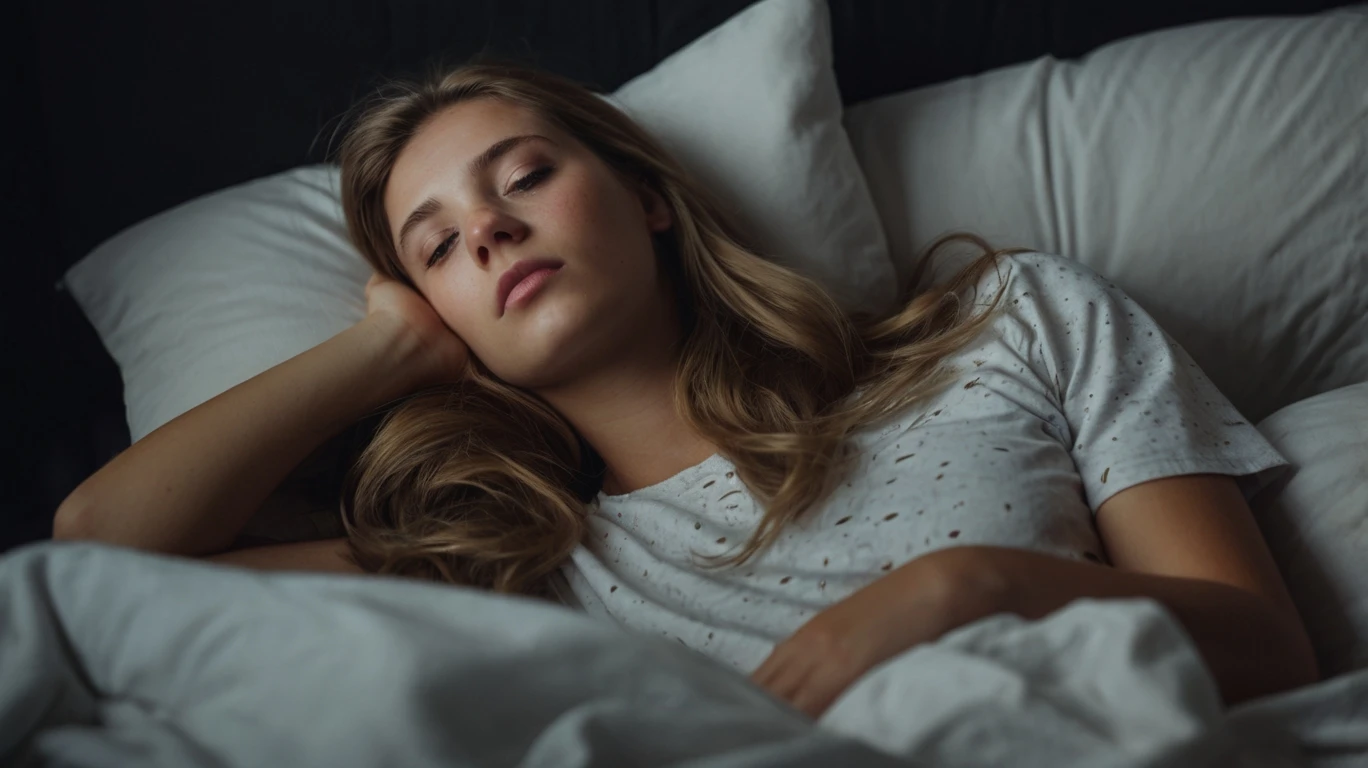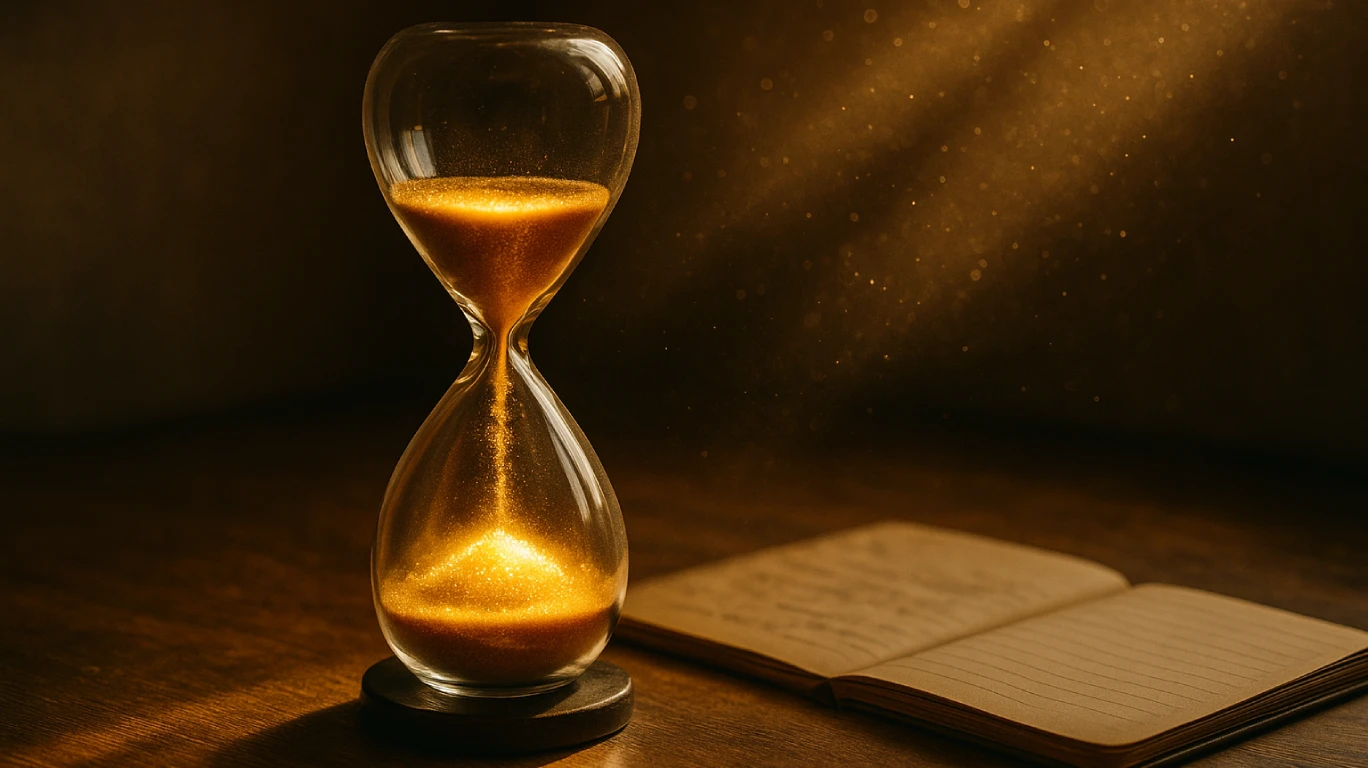It's always unpleasant to wake up in the middle of the night and then toss and turn for a long time, feeling that you can't get back to sleep. This can happen due to circadian rhythm disturbances, anxiety or depression, hormonal imbalances and low blood sugar levels.
Whatever the cause, you need to know how to help yourself fall asleep after waking up at night. Here are some strategies to help with that.
Use deep breathing techniques
Deep breathing is a well-known method of stress relief and relaxation. It comes in handy when you wake up in the middle of the night and feel anxious.
Place your hand on your stomach, close your eyes and take slow deep breaths through your nose. Make sure your belly inflates like a balloon. Count to six as you inhale, and then exhale smoothly and measuredly for the same count to six.
Do several “approaches” to feel relaxed and peaceful. Or maybe you won't even notice how you fall into a deep sleep.
Perform muscle relaxation
If not only your mind but also your body appeared tense while waking up, perform muscle relaxation.
Take a deep breath and tense your toes for ten seconds and then relax them. After that, alternately tense your shins, thighs, abdomen and other parts of your body upwards, also lingering for ten seconds.
This will help you to relax, as well as distract your attention from anxious thoughts that appeared after waking up. And if you don't feel comfortable tensing certain parts of your body, try to do it by engaging all your muscles at once and then relaxing them.
Show yourself some compassion
There's a whole system in our brain responsible for assessing our inability to sleep. And if you wake up often at night, you might have noticed that you involuntarily start to switch to any anxiety triggers that relate to lack of sleep or current problems.
But the more you give in to anxious thoughts, the longer you can't sleep. After waking up at night, you need to show yourself some compassion instead of blaming yourself for what happened and thinking about the unpleasant consequences of what happened.
Think about something pleasant that brings you positive emotions and helps you relax. Intentionally silence thoughts that make anxiety grow to enormous proportions - you'll notice that this practice makes it much easier to fall asleep.
Don't look at the clock
Want to feel even more anxious and guilty about waking up in the middle of the night? Look at the clock.
If you don't, put your alarm clock and gadgets away. Not only do they reinforce anxiety, but they also provide extra stimulation, because you'll have to concentrate to make out the numbers on the dial. Concentration is a feeling characteristic of vigor, so it certainly won't help you fall asleep.
Don't stay in bed until you win
It may seem that the best way to fall asleep is to stay in bed and lie with your eyes closed for as long as you can. However, this approach often does not produce the desired results.
If you lie there for a long time and sleep doesn't come, get out of bed and go to another room to do something relaxing. For example, you can water the houseplants if you forgot to do it during the day, or try drawing something in your notebook.
Any monotonous and quiet activity will sooner or later make you feel sluggish - that's when it's worth going back to bed. And we want to reiterate: resist the urge to turn on the TV or look at your smartphone.
Don't turn on the lights
You may wake up in the middle of the night because you saw a nightmare. Even if you're very anxious and scared, don't turn on the lights, especially the chandelier in the ceiling of the room. Why?
The bright flash of light will be an additional source of stress, and it will also make you wide awake, which obviously won't help you sleep. Plus, light can suppress melatonin production and disrupt your circadian rhythm.
Try to settle down in the dark or get yourself a dim nightlight, preferably remote-controlled, and place it under your bed. Or put it so that the light doesn't shine in your eyes, and try to turn it off as soon as possible after you realize the nightmare wasn't real.
Add noises to your playlist that help you fall asleep
Try turning on white, pink, or brown noise to get you in the mood for sleep faster. If you don't like these sounds, calm, slow music will do. The main thing is that it should not be too loud and not interrupted abruptly.
In addition, if you feel that you can not fall asleep again because of the noise of cars outside the window or sounds from the apartment neighbors, put on the bedside table earplugs and use them during night awakenings.
Start counting backwards
To occupy your brain with something that will help you fall asleep instead of anxious thoughts, start counting backwards from a hundred.
Do it slowly and measuredly, focusing only on the numbers you mentally say. After a while, you'll feel relaxed enough to close your eyes and fall asleep peacefully.
Lower your temperature
You probably know how difficult it can be to fall asleep when the room is too hot. It's especially difficult when you wake up in the middle of the night.
Cover yourself with a lighter blanket or sheet to lower your body temperature a bit, or turn on the air conditioner, setting it to twenty-three degrees or lower.


